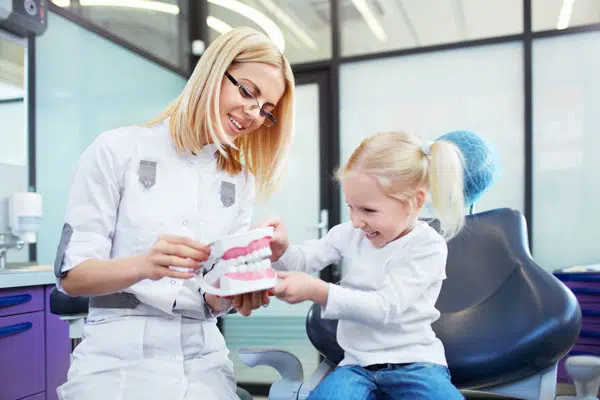Turning six is a big deal for a lot of kids. Not only it is the time when they start Year 1, but it is around this age that they will also start to lose their baby teeth. The name ‘6-year-old molars’ is coined to reflect the eruption of adult molars when your child is approximately 6 years of age. Here’s everything you need to know.
When it comes to babies and teething, we are offered endless amounts of advice and guidance to help us through this not-so-comfortable period. Yet, nothing is mentioned about those pesky 6-year-old molars. Here’s everything you need to know about this permanent teeth eruption and how you can help your child through it.
What are 6-year-old molars?
Wondering about those pesky 6-year-old molars? These teeth are their first molars, and they set the boundary that help all other adult teeth align in the mouth. These molars actually help determine the shape of their face, and will also have an affect on the position of their other permanent teeth.
When do kids start losing their baby teeth?
There’s nothing more exciting than that first wobbly tooth and the anticipation of plenty of Tooth Fairy visits to come. But when does this happen? Children start losing their baby teeth around 5-6 years of age. This can also happen in kids as young as 4, and be delayed until the age of 7. It’s the start of a long journey that will see them with a mix of adult and baby teeth until about 12 years of age.
These baby teeth usually stay in place until they are pushed out by permanent teeth erupting through. This generally happens one by one, starting with the two front bottom teeth (lower central incisors), and the two top front teeth (upper central incisors), then the lateral incisors, first molars, canines and second molars.

What to expect when 6 year old molars come in?
The 6-year-old molars are the first set of permanent teeth that push through without replacing any baby teeth in the process.
During this time, some children experience teething symptoms as they may have when they were babies. Think back to those early days when your babies were first teething and some of the symptoms they would have shown back then, such as mild fever, swollen gums and mild diarrhoea.
How to prepare for permanent teeth eruption
- Keep your child’s gums and teeth in tip top condition to allow the adult molar to erupt in a healthy environment and to reduce risk of infection.
- Check for food trapping in gums as this could be the source of their pain. This can be removed with dental floss.
- Provide children’s paracetamol and teething gels like Bonjela to help sooth the teething symptoms. Warm salty rinses will also work to reduce inflammation.
- Consider having space retainers where baby teeth have been removed so adult teeth can come up in the right place.
- Maintain six-monthly check ups with your dentist to track the order of erupting adult teeth sometimes teeth can be missing.
- Speak to your dentist if the adult teeth that is coming up behind baby teeth hasn’t fallen out yet.
What happens if permanent teeth eruption is early?
So, when do 6 year olds get molars? Just because they’re called the 6-year-old molars doesn’t mean they will erupt on time. It’s considered normal for them to erupt as early as 5 years, and again, this mostly comes down to genetics. Early eruption of permanent teeth is generally nothing to be concerned about.
What happens if permanent teeth eruption is delayed?
Tooth eruption is considered delayed when the child is about 8.5 to 9 years old. Here are some general reasons for a delay:
- Family history: late eruption can be a trait that passes from family members – and is nothing to worry about.
- Nutritional deficiencies: sometimes if kids aren’t getting all the nutrients they need, they tend to develop slower.
- Dental conditions: poor mouth spacing and other dental issues can lead to late eruption.
- Illness: in rare cases, delayed tooth eruption can be caused by certain illnesses.
Get 6-year-old molar advice from a North Shore Dentist
It’s always good for children to have just a basic mouth check at around 2 years of age. Regular dental check-ups aren’t just about the health of your children’s teeth, but also getting them used to the process, so they are comfortable. If you are worried about their 6-year-old molars coming in too early, too late, pain associated with it, are have any general concerns, it’s always a good idea to check in with your dentist.
Head to our directory to discover some of the best dental clinics on the North Shore and book in that appointment today.












